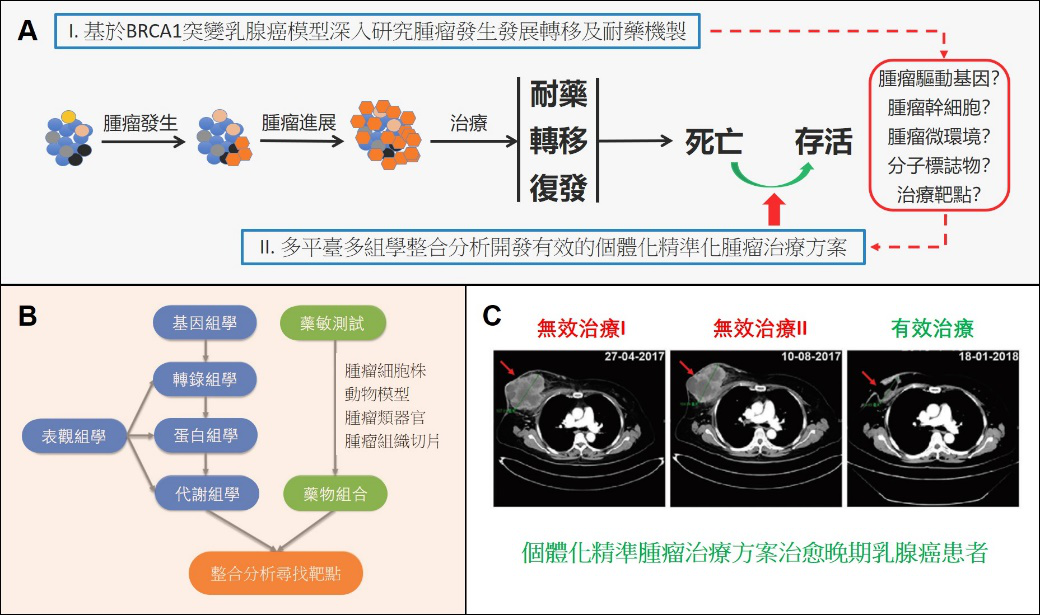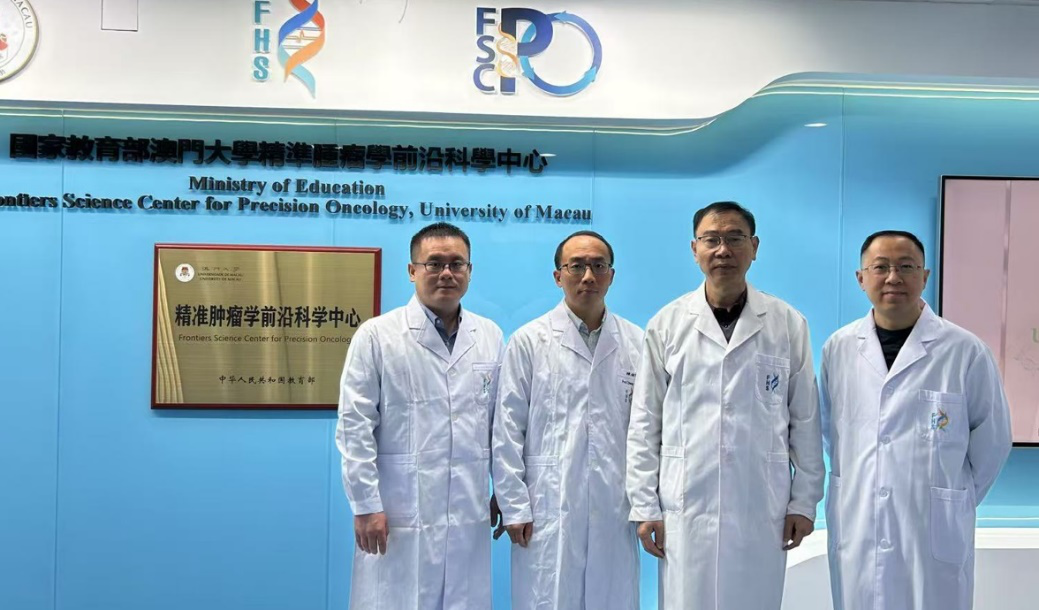Precision Oncology: from Breast Cancer Associated Gene 1 (BRCA1) to Clinical Application
Deng Chu Xia, Chen Qiang, Miao Kai, Sun Heng
University of Macau
Tumors have long posed a significant challenge to global public health. Despite substantial resource investment, treatment outcomes have remained limited. The high heterogeneity of tumors, characterized by varying mechanisms of tumor development among patients, complicates treatment and precludes the use of universal therapeutic approaches. This project originated from basic research, focusing on the molecular mechanisms underlying tumor development. Specifically, it centers on the molecular mechanisms of tumor heterogeneity and the key driver genes involved, using Breast Cancer Associated Gene 1 (BRCA1) as a model. By integrating clinical practice, the research findings are translated into clinical applications. Leveraging insights from tumor molecular mechanisms and advanced technical systems including patient derived organoids (PDOs), 3D tumor slice culture (3D-TSC), multi-omics analysis, high-throughput drug screening and so like, a personalized cancer treatment platform has been established. These research achievements have significantly improved tumor cure rates. The research team's work has garnered high praise and widespread attention from peers and has had a profound societal impact. By promoting personalized precision treatment, the research team's efforts are expected to substantially enhance cancer treatment outcomes, reduce cancer-related mortality, and extend the healthy lifespan of cancer patients. These endeavors have placed Macau on the map as a notable contributor to global cancer research and treatment.

Fig 1 Precision Oncology: from Breast Cancer Associated Gene 1 (BRCA1) to Clinical Application. A. Starting from breast cancer-related gene 1 (BRCA1), our research project studies the molecular mechanism of tumor initiation, progression, metastasis and drug resistance, focusing on and solving key issues such as cancer drivers, cancer stem cells, tumor microenvironment, biomarkers and therapeutic targets. Furthermore, multi-platform and multi-omics integrated analysis was used to develop effective individualized and precise therapies and improve the cure rate of tumors patients. B. Precision medicine for personalized cancer therapy. Precision medicine involves a multitude of technologies in order to gain success. The combination of multi-omics analysis and drug screening will reveal information for precise disease diagnosis and treatment. C. A case report for an advance breast cancer. The patient had been receiving several rounds of drug treatment with progress diseases, and finally cured by the effective therapy developed based on our integrative investigation and analysis.

Fig 2 Key participants in the project. From left to right are: Professor Kai Miao, Professor Qiang Chen, Professor Chuxia Deng (project leader) and Professor Heng Sun.



